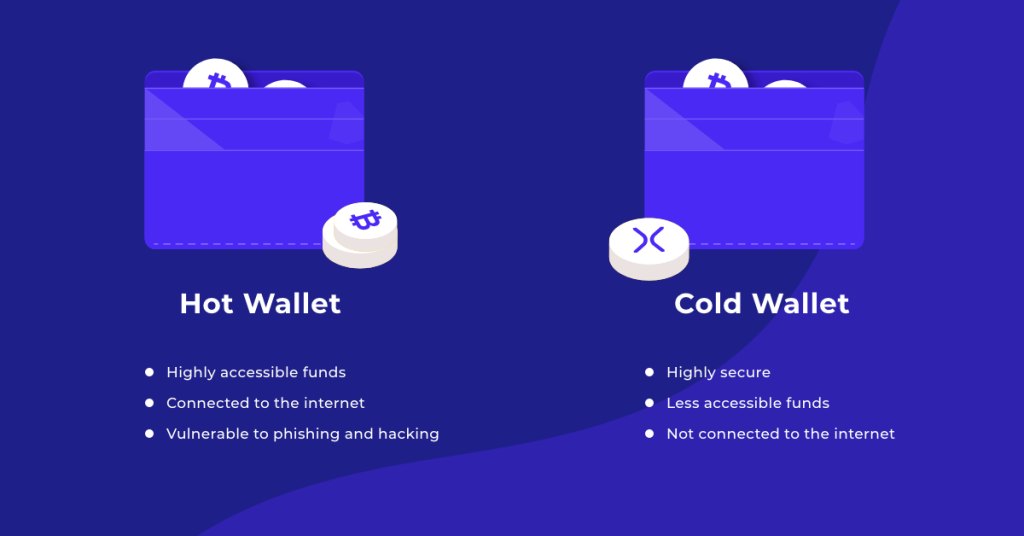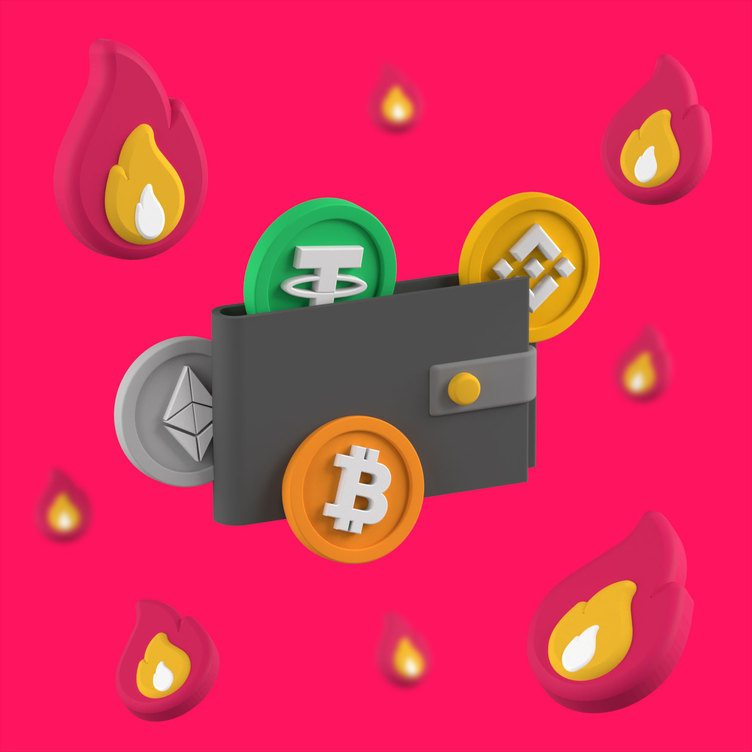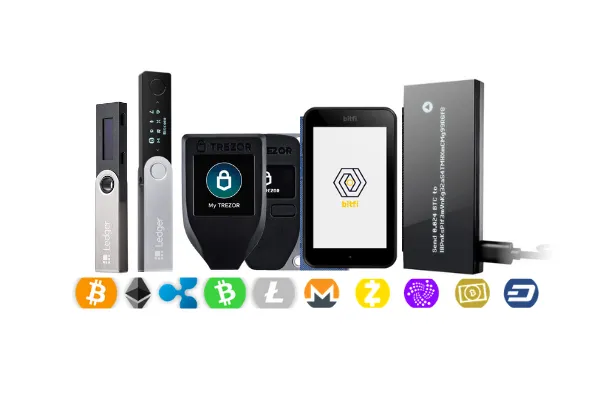Hot wallets vs cold wallets – you’ve heard these terms tossed around in the crypto space, but what do they really mean for the safety of your digital assets? Let’s cut through the tech jargon and delve into the basics. I’ll guide you through the nuts and bolts of both options. Understanding these will lead you to a smarter choice for securing your hard-earned cryptocurrency. With threats lurking in the digital shadows, the decision between hot and cold wallets isn’t just about preference; it’s a matter of fortifying your financial future. Are you ready to make an informed decision that aligns with your lifestyle and investment strategy? Join me on this no-nonsense journey to safeguarding your crypto assets.
Understanding Hot and Cold Wallets: Defining the Basics
What are Hot Wallets?
Hot wallets connect to the internet. They let you use crypto fast. They are apps on a phone or computer. These wallets need good safety steps. You can trade with them every day. But, they can get hacked. There’s a risk when they’re always online.
What are Cold Wallets?
Cold wallets stay offline. You can’t touch your crypto easily. They are like secret vaults. You have hardware or paper wallets. They are very safe from hackers. No net, no hack, right? But cold wallets can be slow to use. They are great for keeping crypto for a long time.
Assessing the Security of Hot vs Cold Wallets
The Risks of Online Crypto Storage
When you put your money online, you face risks. It’s the same with online crypto storage. Hackers love hot wallets because they are always online. This means they are at risk 24/7. A hacked hot wallet can mean you lose all your crypto. Scary, right? Hyperlinks to hacker stories can show the dangers.
But, online wallets are easy to use. They make trading fast. With just a few clicks, you can buy or sell crypto. This is why many still use them.

hot wallet vs cold wallet
Yet, we must not forget the risks. One wrong click can open the door to thieves. They can steal your digital cash. This is a hot topic in the virtual currency wallet comparison debates. Always check your wallet’s security. Look for things like crypto wallet encryption. Two-factor authentication can help too. It makes sure you’re the only one getting in.
The Safety of Physical Crypto Storage
Now let’s chat about cold wallets. Think of them as vaults. They store your crypto offline, safe from hackers. But they can be a bit less handy. Imagine having to unlock a safe every time you need cash.
Cold wallets come in many forms, like hardware wallets for cryptocurrency. They keep your coins off the net. This makes them very safe. Yet, they can feel less user-friendly. If you’re not trading every day, this is a smart choice.
We also have paper wallets for Bitcoin. Think of these as bearer bonds. They have your crypto’s keys on paper. They’re super secure but not so easy to use in a pinch.
The key to using cold wallets well lies in understanding their security perks. They protect your coins like a guard dog for your digital gold. But you have to trade off some speed and ease of use.
When comparing wallet security, remember: hot wallets may invite more risks. They connect to the internet. But, they can be more convenient. Cold wallets provide a secure barrier. They keep your crypto snug and safe offline. Choose based on how often you use your crypto.
To sum it up, if you’re storing a lot, think cold. If you need fast access for trading, a hot wallet picks up the pace. Compare the pros and cons wisely for your needs. Your crypto deserves good care to keep it safe and sound.
The Convenience Factor: Accessibility of Your Crypto Assets
Evaluating Online Wallet Convenience for Daily Use
Hot wallets are like your pocket for digital cash. Think of these wallets as apps on your phone or computer. They work online, making them easy to use. With a hot wallet, you can send and get crypto fast. It’s like texting money across the world.
When you trade every day, hot wallets are your best friend. Logging in quickly, seeing your coins, and making quick trades matter. Online wallets let you do that. They also let you buy things with crypto. Like when you buy a coffee with your phone.
But remember, hot wallets face more risks. They’re always online, so hackers can try to break in. We see news about hot wallet hacking incidents, which is scary. Always use a tough password and turn on two-factor authentication. This adds a layer for hackers to beat.
Hot wallets give you easy access to your coins. But you must be careful. Always check your wallet’s security before using it. Pick one that takes digital wallet security seriously.
Offline Wallet Advantages for Long-term Holders
Now let’s chat about cold storage. It’s like a safe you have at home. Harder to get to, but much safer. Cold wallets work offline, keeping hackers away. They’re like vaults for your digital gold.
People who hold crypto for years like cold storage. Hardware wallets are common. They look like USB drives but are made for storing crypto. You plug them into your device when needed, then keep them safe. There’s also the paper wallet for Bitcoin, which has your crypto keys printed on it.
Cold storage keeps your crypto secure. It’s not on the web, so hackers have a tough time. Think of it like keeping your jewels hidden at home instead of a bag you carry. For long-term holding, it’s smarter. You don’t risk your savings on daily dangers.
But cold wallets can be a bit of a hassle. When you want to use your coins, it takes more steps. You might need to connect your hardware wallet and punch in codes. They’re not as quick as hot wallets. Plus, you have to be careful not to lose it. Physical crypto storage is super safe, but you’re in charge. If you lose your hardware wallet, it’s tough luck.
For a big decision like crypto, think of your plans. Short-term trader? A hot wallet makes sense. In it for the haul? Go for a cold wallet. Whatever you pick, handle your crypto with care. Understand the benefits and watch out for the risks.
So, know what you’re in for. Hot wallets offer ease and speed. Cold wallets offer strong safety. Both have their places. Use them smartly and your crypto will thank you.
Making the Right Choice: Hot vs Cold Wallets for Different Users
Retail Investor Storage Choices
When it comes to keeping your digital coins safe, you have two main paths. Think of these as your money in a wallet or in a safe. Hot wallets are like the wallet you carry every day. They are online, easy to reach, and let you trade fast. But here’s the deal: hot wallets face higher risk. Hackers love to target them, so security is key.
Cold wallets, on the other hand, are like a safe. They are offline. This means they are safe from online attacks. But they can be less handy when you want to make a quick trade. Now, you might ask, “What’s the best pick for someone like me, just getting started?” For a retail investor, which means most folks dealing with their own money, a combo works best.
Use a hot wallet for daily trades but only keep a small amount in it. For the big stuff, like your long-term investment, choose a cold wallet. Think of it as not putting all your eggs in one basket. With this approach, you get quick access and heavy-duty security.
Institutional-Grade Wallet Solutions for Asset Protection
Now, let’s say you’re not just anyone. You’re running a fund or your business has big crypto bucks. You need top-notch security. You want a wallet that can guard against every trick a hacker has. This is where institutional-grade wallets come in. These wallets put up a fortress around your digital cash.
Big players in the game go for hardware wallets. This kind is like a USB stick but smarter. It stores your coins and keeps them hacker-proof until you say otherwise. Powerful stuff, right? Some even team up with security firms to watch over the coins 24/7.
So if you’re in charge of a lot of crypto, go for the gold standard in protection. Use hardware wallets and get pros to help keep an eye on things. The goal? Keep those assets locked down tight but still able to move when you need to.
When choosing between hot and cold wallets, think about your needs. Are you trading every day, or are you in it for the long haul? And, how much are you willing to spend on peace of mind? The smarter you choose your wallet, based on these questions, the better you can sleep at night knowing your coins are safe.
In this post, we broke down the basics of hot and cold wallets. We looked at what hot and cold wallets are. Then, we dived into their security — how hot wallets face risks online and how cold ones keep funds safe off the web. We also checked out convenience. We saw how hot wallets make daily crypto use easy. Cold wallets, on the other hand, are best for those who plan to hold on to their assets for a while.
So, what should you take away from all this? Whether you’re a casual buyer or a big-time player, choosing the right wallet is key. It’s all about what you need. Want quick access to buy and sell? Go for a hot wallet. Looking to keep your crypto safe for the long run? A cold wallet is your best bet. Keep your goals in mind, stay informed, and you’ll make the right choice for your digital dollars. Follow Dynamic Cryto network to update more knowledge about Crypto.
Q&A :
What is the main difference between hot wallets and cold wallets?
Hot wallets are digital cryptocurrency wallets that are connected to the internet, making them more convenient for frequent transactions. Conversely, cold wallets are offline storage options (such as hardware wallets or paper wallets), providing additional security by reducing the risk of online hacks.
Which type of wallet is safer: a hot wallet or a cold wallet?
Cold wallets are generally considered safer than hot wallets since they are not continuously connected to the internet and are less vulnerable to cyber attacks and unauthorized access. However, it’s important to implement strong security practices no matter the wallet type.
Can you store all types of cryptocurrencies in hot wallets and cold wallets?
Most hot wallets and cold wallets are designed to support multiple types of cryptocurrencies. However, it’s essential to verify that your chosen wallet is compatible with the specific cryptocurrencies you intend to store.
Are cold wallets worth the investment for casual cryptocurrency users?
For casual users with a small amount of cryptocurrency, a hot wallet may suffice due to its convenience. However, if the investment grows or includes significant value, switching to a cold wallet might be a worthwhile investment for the added security.
How do you make transactions from a cold wallet if it’s offline?
To make a transaction from a cold wallet, you usually need to connect it to a computer or use a companion app that allows you to sign transactions offline before broadcasting them to the network from an online device. This ensures the keys remain secure while permitting transactions to be made.


